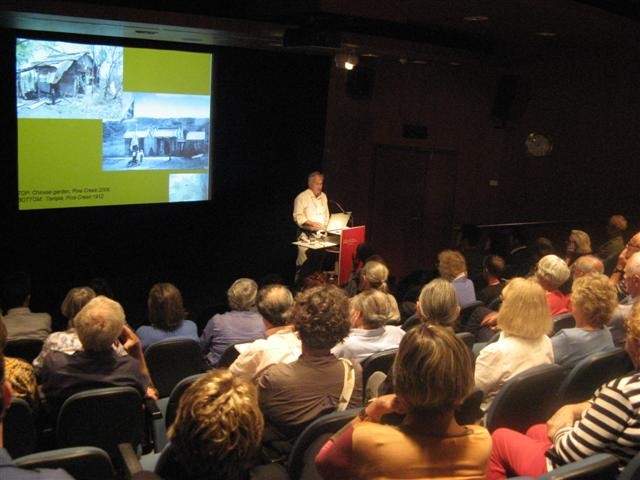Out of the Port: Illegal Immigration nineteenth century style with Gordon Grimwade
By JOL Admin | 16 September 2010
In the late nineteenth century, Chinese overlanders walked over 2000 kilometres from the Darwin area to North Queensland in search of permanent work. Travelling in small groups these unemployed miners and artisans carried limited food and water with many dying en route. They had to avoid hostile Aboriginal attacks and find their way on poorly marked tracks. When they reached Queensland they ran the risk of arrest and six months jail. Some were deported back to Darwin. Others were marched to the border and told to find their own way back.

On Wednesday 15 September Gordon Grimwade, archaeologist and cultural heritage expert and 2008 John Oxley Library Fellow, provided a fascinating overview of the experiences of some of these wanderers in the latest of our Out of the Port lunchtime lecture. This presentation was based on the research Gordon undertook as part of his Fellowship. The talk was accompanied by a terrific slideshow showing sites relating to this largely unknown story in Australian history and was followed by a lively question and answer session at the end. A sound recording of the session will be made available through the State Library's website.
State Library of Queensland, John Oxley Library, and the Department of Environmental and Resources Management come together to present the monthly Out of the Port series of talks promoting new research on Queensland. Out of the Port highlights our incredibly rich and diverse history, and encourages dialogue amongst researchers.
Join us on 20 October when Prof. Anna Haebich and Mr Mark Schuster explore German immigration to Queensland from the 1840s onwards in Missing! German heritage of Queensland.
Comments
Your email address will not be published.
We welcome relevant, respectful comments.